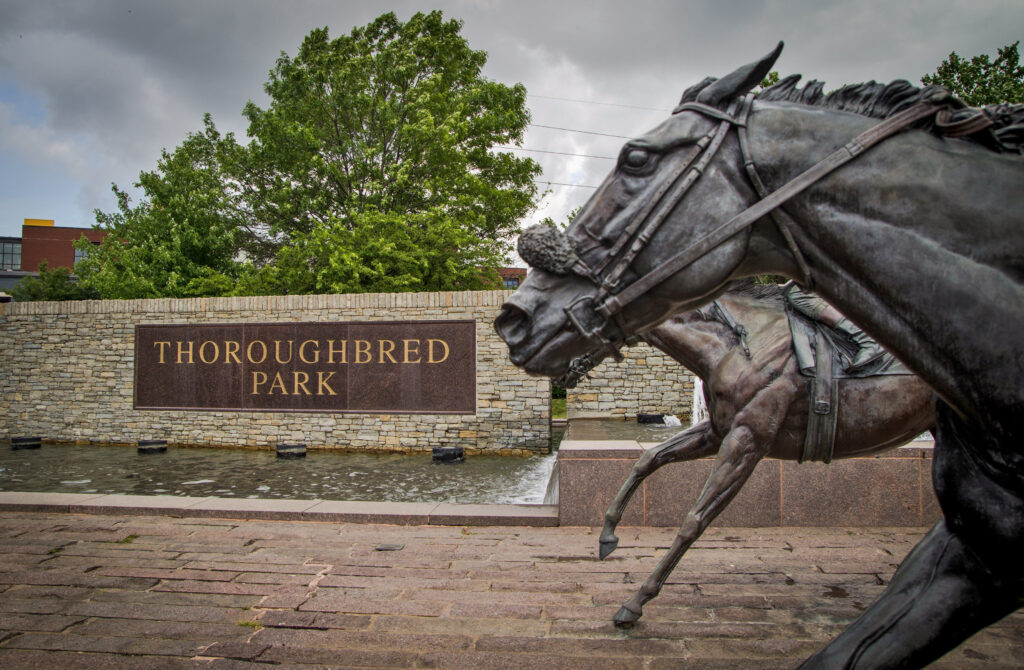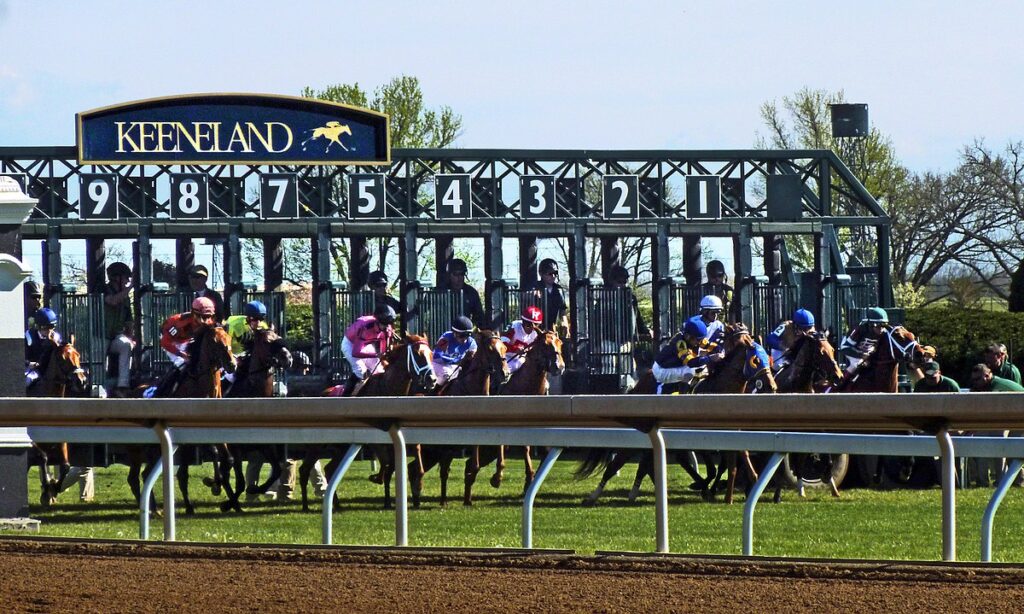A View 6-Feet from the Track
Dr. David Priest comments on veterinary life amid COVID-19 and specifically on its impacts in the Kentucky horseracing community.

Dr. David Priest is a PBEC veterinarian who treats horses in Florida during the fall and winter and operates in his home state of Kentucky during the spring and summer. Dr. Priest primarily focuses on high performance racehorses with a special interest in respiratory function and surgery. As Coronavirus closures swept the nation and all factions of horse sport, Dr. Priest has been a prime witness to the impacts on the racing community from the bluegrass state.
By the time I returned to my family’s farm and residence in Kentucky on March 26, the commonwealth had already issued a stay at home order. The normally incredibly busy Keeneland Racecourse April Sale had been cancelled with no horses being allowed to stable at that track. I wasn’t surprised by that decision, given the circumstances, but it certainly had a profound impact on the horse industry and racing in Kentucky.
My normal daily care of horses at Keeneland during April, which is typically my busiest month, was non-existent. However, as a veterinarian and farm owner, I consider myself incredibly fortunate during this challenging time. I have still been treating horses daily, primarily those with more pressing medical needs, as well as horses at my family’s farm, which includes thoroughbred lay-ups, mares with foals, and dressage horses. All in all, I feel incredibly lucky.
Tracks here and across the country have been hit hard. Trainers whose livelihood depends on racing have just been doing what they can to keep horses going and giving them time turned out if possible. Its still a waiting game on when live spectator racing will return to Kentucky.
Churchill Downs began racing without spectators on May 16. Everyone that enters the track is required to have a negative COVID-19 test performed by Churchill Downs staff. They’ve set in place required temperature checks and face masks. I work mainly at Keeneland, which is a bit more relaxed in their protocols and is now allowing stabling and training for a small number of horses.
In central Kentucky, breeding thoroughbreds is king. The yearling sales, beginning in July and peaking in September, are the lifeblood of the breeding industry. There is tremendous uncertainty about these sales and what impacts this recession will cause. People typically come from all over the world for these sales where yearlings can be bought for $500,000 to well over $1 million dollars. There may be hundreds of thousands of dollars ties up in stud fees and expenses for a single yearling. Those profits are essential to supporting the entire industry.

To say there is still a lot of uncertainty is an understatement. Personally, the real saving grace is that we can all focus on what we can control, which is taking care of our horses every day. That part hasn’t changed much at all, thank goodness for that. The rest of it is just going to have to sort itself out with time. Racing in some form will survive this. What exactly it will look like, no one can be entirely sure.